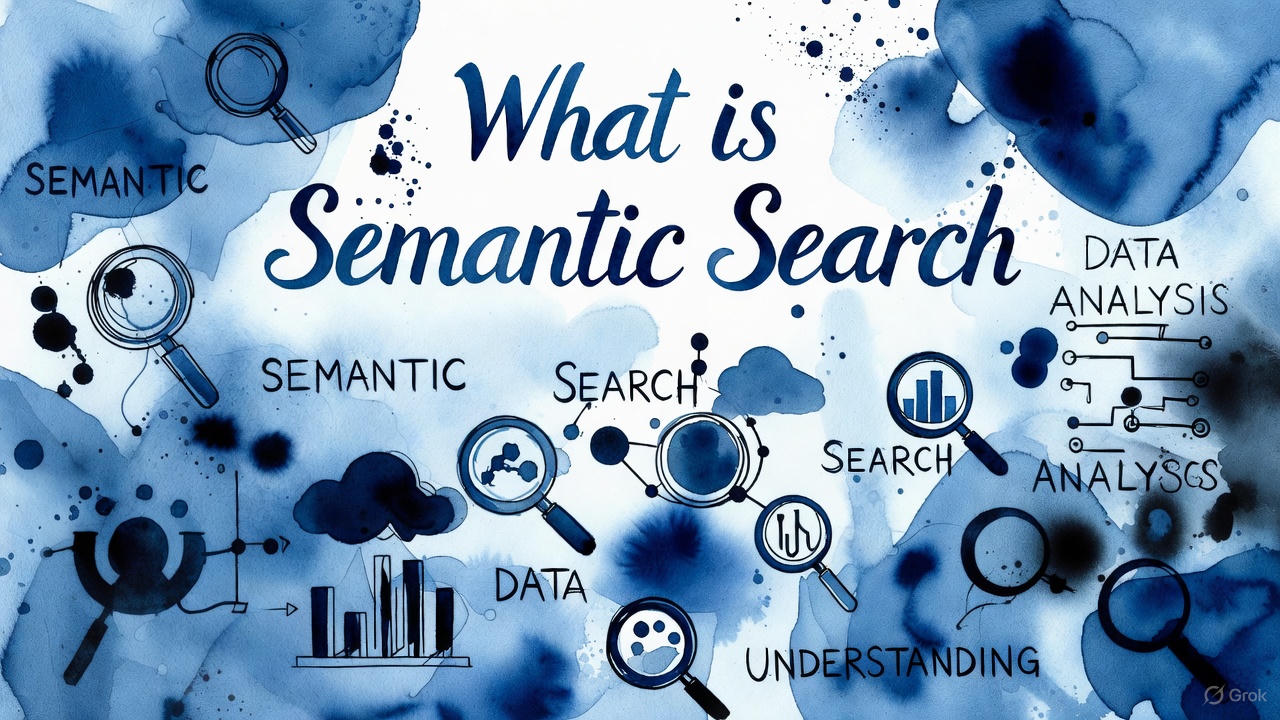Beyond RAG: A Technical Deep Dive into Gemini's File Search Tool
Making Large Language Models (LLMs) reason over private, domain-specific, or real-time data is one of the most significant challenges in applied AI. The standard solution has been Retrieval-Augmented Generation (RAG), a powerful but often complex architecture. Now, Google's Gemini API introduces a File Search tool that promises to handle the entire RAG pipeline as a managed service. But does this new tool truly make traditional RAG pipelines obsolete?

This technical article explores the architecture of a conventional RAG pipeline, contrasts it with the streamlined approach of the Gemini File Search tool, and provides a hands-on Proof of Concept (POC) to demonstrate its power and simplicity.
Deconstructing the Traditional RAG Pipeline
For the last couple of years, developers have been meticulously stitching together various components to build RAG systems. This "do-it-yourself" approach provides granular control but comes with significant engineering overhead. A typical pipeline involves several distinct stages:

- Data Ingestion & Pre-processing: Connectors pull data from various sources (APIs, databases, document repositories). The text is cleaned, and metadata is extracted.
- Chunking: Documents are strategically split into smaller, semantically coherent segments. The quality of chunking is critical for retrieval accuracy, and finding the optimal strategy is often a process of trial and error.
- Embedding Generation: Each chunk is passed through an embedding model (like those from Hugging Face or Cohere) to be converted into a dense vector, a numerical representation of its meaning.
- Vector Database Storage: These vectors are loaded into a specialized vector database (e.g., Pinecone, Weaviate, or ChromaDB). This database indexes the vectors for efficient and scalable similarity search.
- Retrieval and Generation: When a user submits a query, it is also converted into a vector. The vector database is queried to find the document chunks with the most similar vectors. These chunks are then "stuffed" into the context of a prompt, along with the original question, and sent to an LLM to generate a final, data-grounded answer.
This entire workflow requires careful orchestration, infrastructure management, scaling considerations, and continuous maintenance.
A Paradigm Shift: The Gemini File Search Tool
The Gemini File Search tool is not an alternative to RAG; it is a managed RAG pipeline integrated directly into the Gemini API. It abstracts away nearly every stage of the traditional process, allowing developers to focus on application logic rather than infrastructure.
Here’s how it fundamentally simplifies the architecture:
- One-Stop Shop: Instead of separate services for storage, chunking, embedding, and retrieval, the File Search tool provides a unified API endpoint.
- Automated Data Processing: When you upload a file (PDF, DOCX, TXT, etc.), Google handles the storage, optimal chunking strategy, embedding generation using its state-of-the-art models, and indexing.
- Integrated Retrieval: The most significant innovation is how retrieval is invoked. You don't manually fetch data. Instead, you grant the Gemini model a
Toolthat allows it to perform a search over your files on its own when it deems it necessary to answer a question. This is a more agentic approach where the model actively seeks information.
The question isn't whether RAG is dead—it's more relevant than ever. The change is that for a vast number of use cases, the need to manually build and maintain the RAG pipeline is disappearing.
Decision Framework: Managed Service vs. Custom Pipeline
Choosing between Gemini's managed tool and a custom-built RAG pipeline is a critical architectural decision. The right choice depends on your project's requirements for speed, control, and complexity.
Feature | Gemini File Search (Managed) | Custom RAG Pipeline |
|---|---|---|
Speed | Very High. Days or hours to implement. | Low. Weeks or months to build and stabilize. |
Control & Customization | Low. Uses Google's optimized but opaque logic. | Very High. Full control over every component. |
Infrastructure Overhead | None. Fully managed by Google. | High. Requires managing servers, databases, etc. |
Ideal For | Rapid prototypes, MVPs, internal tools, standard Q&A. | Specialized domains, complex data, strict governance. |
Expertise Required | Basic API and Python knowledge. | Deep ML, data engineering, and infrastructure skills. |
Choose Gemini File Search When...
- Speed is Your Top Priority: You need to build a proof-of-concept, MVP, or production application quickly. The tool eliminates months of engineering work, allowing you to go from idea to implementation in a fraction of the time.
- You Prefer Simplicity and Less Maintenance: Your team wants to focus on the end-user application, not on managing the complexities of a data pipeline. You want a "fire and forget" solution for grounding.
- Your Use Case is Standard: Your goal is to build a question-answering system over a corpus of standard documents (PDFs, DOCX, TXT, etc.). This is perfect for internal knowledge bases, customer support chatbots, and document analysis tools.
- You Trust Google's Optimizations: You are confident that Google's built-in strategies for chunking, embedding, and retrieval are "good enough" for your needs and will benefit from their ongoing research and improvements.
Build a Custom RAG Pipeline When...
- You Need Absolute Control and Customization: Your application's success hinges on fine-tuning the pipeline. This includes:
- Custom Chunking: You need to split documents based on specific rules, like Markdown headers, legal clauses, or code function blocks.
- Specialized Embedding Models: You have a domain-specific embedding model (e.g., fine-tuned on financial or biomedical text) that outperforms general-purpose models.
- Advanced Retrieval Logic: You want to implement more than just vector similarity search, such as hybrid search (keyword + vector), re-ranking models for relevance, or graph-based retrieval.
- You Have Unsupported Data Sources: Your data resides in formats not supported by the File Search tool, or you need to pull from live databases (SQL/NoSQL) or a stream of complex API feeds.
- You Face Strict Data Residency or Governance Constraints: Your organization requires that all data be processed and stored in a specific VPC, on-premise, or within a cloud environment that is not Google Cloud.
- You Are Operating at Extreme Scale: For massive-scale applications, you may need to hand-pick and optimize each component (e.g., a specific vector database known for ultra-low latency) to meet stringent performance and cost requirements.
- You Want to Avoid Vendor Lock-In: Building with open-source components (like LangChain, ChromaDB, SentenceTransformers) ensures your architecture is portable and can be deployed across any cloud provider.
Hands-On Proof of Concept: Grounding Gemini in 60 Seconds
Let's move from theory to practice. This POC will guide you through uploading a document and asking Gemini to answer questions based solely on its content.
Prerequisites
- Python 3.9+ installed on your machine.
- A Google Gemini API Key: You can generate one for free at Google AI Studio.
Step 1: Set Up Your Environment
Install the official Google Generative AI library for Python.
pip install -q -U google-genaiStep 2: Prepare Your Data
Create a simple text file named policy_document.txt in the same directory as your Python script. This will serve as our private knowledge base.
policy_document.txt
Company Travel Policy - Effective Q4 2025
All employees are eligible for travel expense reimbursement. For international travel, business class is approved for flights longer than 8 hours. For domestic travel, economy plus is the standard. Employees must submit an expense report with all original receipts within 15 days of returning from their trip. The use of ride-sharing services like Uber and Lyft is permitted, but luxury options (e.g., Uber Black) are not reimbursable. A daily per diem of $75 is provided for meals on all overnight trips.Step 3: The Code
The following Python script orchestrates the entire process: creating a secure file store, uploading our document, and then asking a question that can only be answered using the document's contents.
Create a Python file named run_gemini_search.py and paste the code below. Remember to replace "GEMINI_API_KEY" with your actual key.
from google import genai
from google.genai import types
import time
GEMINI_API_KEY=""
client = genai.Client(api_key=GEMINI_API_KEY)
# Create the file search store with an optional display name
file_search_store = client.file_search_stores.create(config={'display_name': 'filestoredisplayname'})
# Upload and import a file into the file search store, supply a file name which will be visible in citations
operation = client.file_search_stores.upload_to_file_search_store(
file='policy_document.txt', # Give absolute path to the file
file_search_store_name=file_search_store.name,
config={
'display_name' : 'display-file-name',
}
)
# Wait until import is complete
while not operation.done:
time.sleep(5)
operation = client.operations.get(operation)
fileSearch = types.Tool(
file_search=types.FileSearch(
file_search_store_names=[file_search_store.name]
)
)
# Ask a question about the file
response = client.models.generate_content(model="gemini-2.5-flash", contents="Tell me about the company's travel policy on Uber Black.", config=types.GenerateContentConfig(
tools=[fileSearch]
))
print(response.text)
print(response.candidates[0].grounding_metadata)
Step 4: Execution and Expected Output
Run the script from your terminal:
python run_gemini_search.pyYou will see a series of status updates. After the file is processed, the model will generate a response. Because the model has access to the travel policy, it will provide an accurate, context-aware answer similar to this:
--- Model Response ---
The company's travel policy, effective Q4 2025, permits the use of ride-sharing services such as Uber and Lyft. However, luxury options like Uber Black are explicitly stated as not reimbursable.
In addition to this, the policy outlines other details:
* All employees are eligible for travel expense reimbursement.
* For international flights exceeding 8 hours, business class is approved.
* For domestic travel, economy plus is the standard.
* Employees are required to submit an expense report with all original receipts within 15 days of returning from their trip.
* A daily per diem of $75 is provided for meals on all overnight trips.
google_maps_widget_context_token=None grounding_chunks=[GroundingChunk(
retrieved_context=GroundingChunkRetrievedContext(
text="""Company Travel Policy - Effective Q4 2025
All employees are eligible for travel expense reimbursement. For international travel, business class is approved for flights longer than 8 hours. For domestic travel, economy plus is the standard. Employees must submit an expense report with all original receipts within 15 days of returning from their trip. The use of ride-sharing services like Uber and Lyft is permitted, but luxury options (e.g., Uber Black) are not reimbursable. A daily per diem of $75 is provided for meals on all overnight trips.""",
title='display-file-name'
)
)] grounding_supports=[GroundingSupport(
grounding_chunk_indices=[
0,
],
segment=Segment(
end_index=193,
start_index=112,
text='However, luxury options like Uber Black are explicitly stated as not reimbursable'
)
), GroundingSupport(
grounding_chunk_indices=[
0,
],
segment=Segment(
end_index=315,
start_index=196,
text="""In addition to this, the policy outlines other details:
* All employees are eligible for travel expense reimbursement"""
)
), GroundingSupport(
grounding_chunk_indices=[
0,
],
segment=Segment(
end_index=392,
start_index=317,
text='* For international flights exceeding 8 hours, business class is approved'
)
), GroundingSupport(
grounding_chunk_indices=[
0,
],
segment=Segment(
end_index=447,
start_index=394,
text='* For domestic travel, economy plus is the standard'
)
), GroundingSupport(
grounding_chunk_indices=[
0,
],
segment=Segment(
end_index=574,
start_index=449,
text='* Employees are required to submit an expense report with all original receipts within 15 days of returning from their trip'
)
), GroundingSupport(
grounding_chunk_indices=[
0,
],
segment=Segment(
end_index=648,
start_index=576,
text='* A daily per diem of $75 is provided for meals on all overnight trips'
)
)] retrieval_metadata=None retrieval_queries=None search_entry_point=None source_flagging_uris=None web_search_queries=None
Conclusion
The Gemini File Search tool represents a major step forward in making data-grounded AI accessible. While expert teams may still opt to build custom RAG pipelines for highly specialized use cases—such as needing unique chunking algorithms or custom-trained embedding models—this integrated tool will undoubtedly become the default choice for a vast majority of applications.
We've moved from a world where RAG was an architectural pattern you had to build, to one where it is a feature you simply enable. The focus can now shift from managing complex data pipelines to crafting innovative user experiences, powered by LLMs that are not just intelligent, but also incredibly well-informed.


